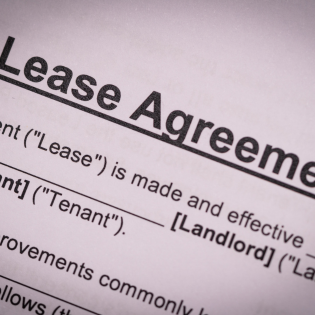Thinking of franchising your business? Is it right for you?

Thinking of franchising your business? Is it right for you?
The franchise business model involves a business owner (the franchisor) entering into a franchise agreement with a buyer (the franchisee) who purchases the brand rights, know-how and start-up materials to enable them to run their own franchise business, usually within a specific territory.
If you are a business owner, there are numerous factors to think about before setting up a franchise. Below we set out some pros and cons of franchising your business to help you decide if becoming a franchisor is right for you.
Advantages for franchisors
- More efficient growth: Many hands make light work and starting a franchise can make opening in multiple locations a simpler and more efficient process. Sharing the work and costs of opening new outlets with franchisees removes the burden from the single franchisor.
- Removal from day-to-day operations: Generally, a franchisor will have nothing to do with the day-to-day running of a franchised unit and will be insulated from the frustrations of recruiting and managing staff. This frees up the franchisor to focus on the bigger picture issues such as growing the business.
- Increased brand awareness: The more locations a brand has, the more people are aware of the brand. The more customers come to know and love the brand, the more successful the business can become. This is a win-win for both the franchisor and franchisee. Achieving this virtuous circle of brand recognition and customer loyalty is likely to happen more quickly with a franchise model due to the speed and ease at which it is possible to roll out new outlets.
- Reduced risk: It is the franchisee who takes on the debt and liability of opening a new unit under the name of the franchise. For example, the franchisee will sign the lease for the new premises and be liable to the property owner. The franchisor gets the benefit of an extra location without talking on any extra liabilities.
- Separate corporate entities: The original business owned by the franchisor will a limited company, but any new franchise business will be held by the franchisee in a separate structure – usually as a limited company or as a sole trader. This acts to further insulate the franchisor against liability.
- Keeps debt down: Growing the business as a franchise enables a franchisor to expand without taking on additional debt. Business loans can be hard to obtain and may not be available at favourable rates. The franchisor will make money from their franchisees in the form of management service fees and this capital can then be ploughed back into the business without having to pay interest to a loan provider.
Disadvantages for franchisors
- Costs of establishing the franchise: While the financial balance is potentially in the franchisor’s favour, setting up a franchise business is not cost free, initial costs can be high. For example, it is vital to have a clear and comprehensive franchise agreement in place to protect your business as you grow your franchise, so one outlay will be for input from a specialist franchise lawyer.
- Loss of control: By selling various brand rights to franchisees, the franchisor is inevitably giving up control when compared to running an independent business. Even though the franchise agreement contains strong restrictions on what a franchisee can and cannot do, they will have a degree of independence and not every business decision taken by them will necessary be the same as the franchisor would have taken itself. As more units are opened under the franchise, it may become harder for the franchisor to keep on top of what is happening in each one. It may also be hard for the franchisor to let go of “their baby.”
- Risk to brand reputation: While a professionally drafted franchise agreement may contain all the right clauses to protect the franchisor and their business, a franchise who breaches its terms could do considerable damage to a franchisor’s brand reputation by their actions (or inactions). A franchisor will need to comprehensively vet all potential franchisees to ensure they are compatible with the brand and its values.
- Potential for legal disputes: Franchisors and franchisees will inevitably need to work closely together and there is always the risk of a falling out. While a well-drafted franchise agreement can limit the risk of disagreements, the risk remains. Should litigation or mediation become necessary, this could be a costly and time-consuming distraction from the success of the business. It is therefore vital that you choose your franchisees very carefully to mitigate this risk.
The list of pros and cons set out above demonstrates the importance of drafting the terms of any franchise agreement extremely carefully.
Make sure your franchise agreement is drafted by a British Franchise Association (bfa) affiliated lawyer.
Such terms will determine the extent of the franchisor’s continuing control over its business, the financial obligations of the franchisee and how any disputes will be dealt with.
It is therefore especially important for franchisors to get their franchise agreement drafted by a specialist franchise solicitor.
How can we help you?
Goldstein Legal is part of Nexa. Goldstein Legal are members of the British Franchise Association and offer a range of legal services for franchisors and franchisees, regularly advising both businesses and individuals.
Contact any of our friendly team for a confidential, no obligation chat to find out how we can help you.







